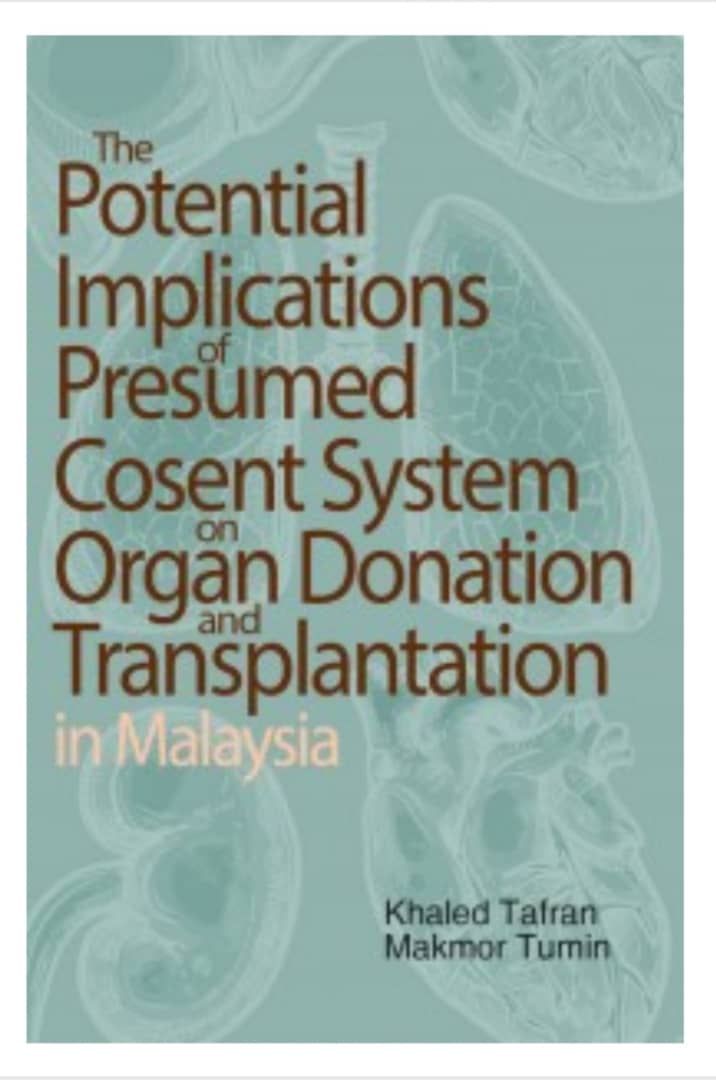The Potential Implications Of Presumed Cosent System On Organ Donation And Transplantation In Malaysia
Author: Khaled
Tafran Makmor Tumin
Publisher: UM
Press
ISBN: 9789674880880
Year: 2018
Pages: 268pp
Price: RM38
More than 21,000 patients are in the waiting list for organs in Malaysia, and around two of them die every day while waiting. The extremely low number of deceased donors is the prime reason behind this dilemma. However, the case is not exclusive to Malaysia, as most countries also suffer from organ shortage. However, countries like Spain and Croatia have been reporting the highest number of donors. Some scholars argue that the success of these countries is attributed by the implementation of the presumed consent policy, in which everyone is deemed as a deceased donor unless he or she stated otherwise during his or her lifetime. Therefore, implementing the presumed consent system is suggested to be the solution for organ shortage. However, other scholars argue that the presumed consent system is not a magical solution for the organ shortage, citing the low number of donations achieved in Chile and Brazil after the implementation of a similar system. Malaysia applies the informed consent system, wherein organs can be procured from a deceased if he or she has registered his or her will to donate during his or her lifetime. Some argue that the implementation of a presumed consent system in Malaysia will enhance the number of donors, while others argue that such implementation may worsen the problem. Therefore, studying and understanding the potential implications before implementing this system is imperative. This is to answer the many questions that could be encapsulated in one enquiry: will the presumed consent system improve deceased donation in Malaysia? This book is the first of its kind to attempt to provide a plausible answer for this question.








